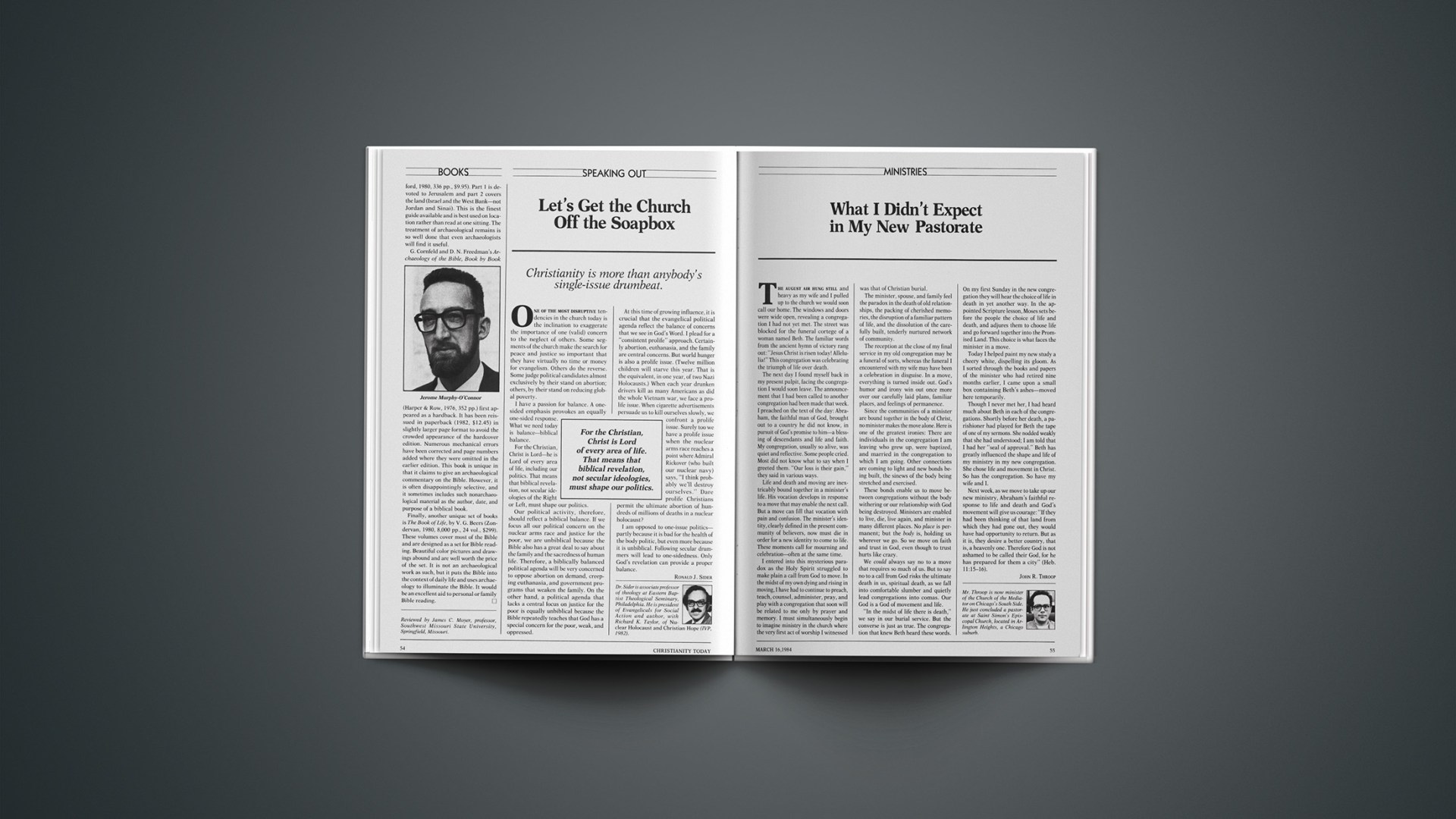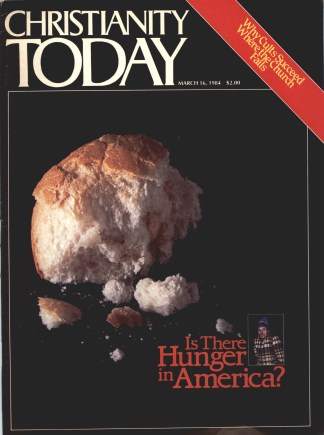Christianity is more than anybody’s single-issue drumbeat.
One of the most disruptive tendencies in the church today is the inclination to exaggerate the importance of one (valid) concern to the neglect of others. Some segments of the church make the search for peace and justice so important that they have virtually no time or money for evangelism. Others do the reverse. Some judge political candidates almost exclusively by their stand on abortion; others, by their stand on reducing global poverty.
I have a passion for balance. A one-sided emphasis provokes an equally one-sided response. What we need today is balance—biblical balance.
For the Christian, Christ is Lord—he is Lord of every area of life, including our politics. That means that biblical revelation, not secular ideologies of the Right or Left, must shape our politics.
Our political activity, therefore, should reflect a biblical balance. If we focus all our political concern on the nuclear arms race and justice for the poor, we are unbiblical because the Bible also has a great deal to say about the family and the sacredness of human life. Therefore, a biblically balanced political agenda will be very concerned to oppose abortion on demand, creeping euthanasia, and government programs that weaken the family. On the other hand, a political agenda that lacks a central focus on justice for the poor is equally unbiblical because the Bible repeatedly teaches that God has a special concern for the poor, weak, and oppressed.
At this time of growing influence, it is crucial that the evangelical political agenda reflect the balance of concerns that we see in God’s Word. I plead for a “consistent prolife” approach. Certainly abortion, euthanasia, and the family are central concerns. But world hunger is also a prolife issue. (Twelve million children will starve this year. That is the equivalent, in one year, of two Nazi Holocausts.) When each year drunken drivers kill as many Americans as did the whole Vietnam war, we face a prolife issue. When cigarette advertisements persuade us to kill ourselves slowly, we confront a prolife issue. Surely too we have a prolife issue when the nuclear arms race reaches a point where Admiral Rickover (who built our nuclear navy) says, “I think probably we’ll destroy ourselves.” Dare prolife Christians permit the ultimate abortion of hundreds of millions of deaths in a nuclear holocaust?
I am opposed to one-issue politics—partly because it is bad for the health of the body politic, but even more because it is unbiblical. Following secular drummers will lead to one-sidedness. Only God’s revelation can provide a proper balance.
Dr. Sider is associate professor of theology at Eastern Baptist Theological Seminary, Philadelphia. He is president of Evangelicals for Social Action and author, with Richard K. Taylor, of Nuclear Holocaust and Christian Hope (IVP, 1982).










